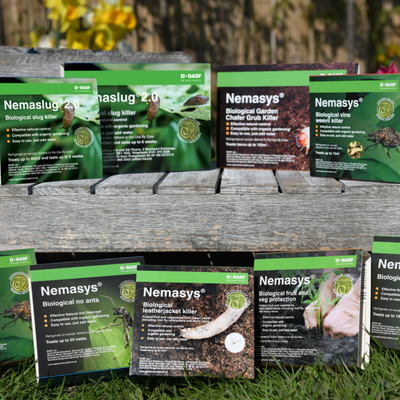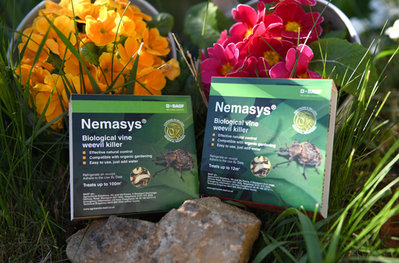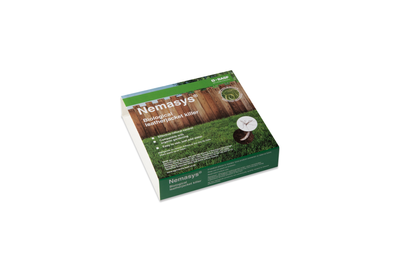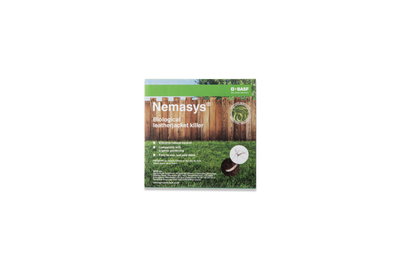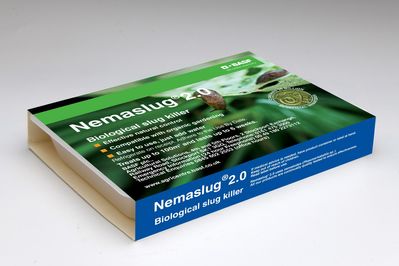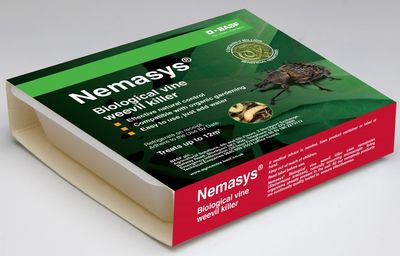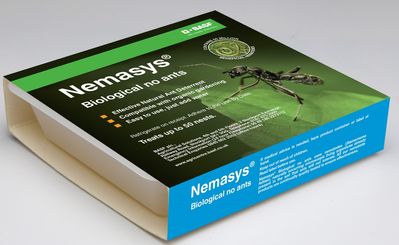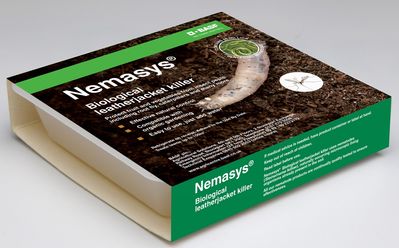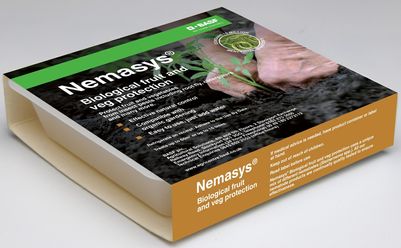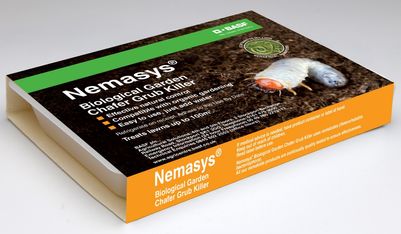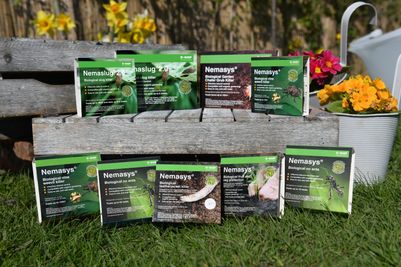National Gardening Week: Sustainable Pest Control Made Simple
Published:
Read Time: 3 mins
With National Gardening Week shining a spotlight on the joy of growing, now is the perfect time to embrace simpler, smarter ways to support a thriving garden. Whether it’s a first go at planting or another season of cultivation, getting started can bring a flurry of decisions - what to grow, where to plant, and how to deal with persistent pests.
One solution for treating pests that’s gaining ground is the use of beneficial nematodes from Nemasys. These microscopic, soil-dwelling allies quietly get to work beneath the surface, offering a chemical-free, sustainable way to protect plants from common garden pests. Straightforward to use and gentle on the environment, they’re the unsung heroes of resilient, pest-free gardening.
What Are Beneficial Nematodes?
Nemasys beneficial nematodes are microscopic worms that serve as a natural and highly effective form of biological pest control. Targeting a wide range of garden pests, including slugs, vine weevils, leatherjackets, and sciarid flies - these tiny allies work beneath the soil to keep gardens thriving.
Once applied to the soil, nematodes actively seek out their prey, entering the pest’s body through natural openings. Inside, they release a harmful bacterium that quickly eliminates the host, helping to reduce pest populations naturally. As their job is completed, nematodes naturally decline in number, returning to the normal levels already present in the soil.
Ideal for organic gardening, beneficial nematodes provide a chemical-free solution that is safe for plants, pets, children, and wildlife, making them a trusted choice for sustainable pest control.
Applying Nematodes in Five Simple Steps
Not only are beneficial nematodes highly effective at controlling common garden pests but applying them is as easy as watering your plants! In just five simple steps, you can protect your garden for up to six weeks - keeping hostas intact, vegetable patches thriving, and unwanted pests at bay.
1. Identify the Pests
The first step is figuring out what pests are causing the problem. If there are holes in the leaves and slimy traces, slugs are likely to blame. For vine weevil larvae, check the roots of plants in pots or planters, while adult vine weevils can leave U-shaped notches on leaves of affected plants. Once the pest is identified, it’s time to get the right nematodes. Keep them in the fridge when they arrive and use them before they expire.
2. Check the Conditions
Nematodes work best when soil temperatures are between 5°C and 30°C, depending on the species. It’s also important to apply them when UV levels are low, so early morning or evening is the perfect time to go to work.
3. Mix and Apply
When it’s time to apply, just mix the nematodes with water in a watering can or sprayer. Stir well to activate the nematodes and make sure there are no lumps. If using a watering can, attach a coarse rose to prevent any blockages.
4. Keep the Soil Moist
To help the nematodes stay active, keep the soil moist for a few weeks. Watering in the early morning or evening is best, as it prevents the sun from drying out the soil and making the nematodes less effective.
5. Stick to a Routine
For continued protection, reapply the nematodes every six weeks throughout the growing season. This simple routine keeps pests at bay and helps plants stay healthy all season long.
With minimal effort, nematodes offer a safe, natural way to control pests and keep gardens thriving, all while being safe for plants, pets, and wildlife.
This National Gardening Week, it's time to ditch harmful chemicals and make pest control easy with Nemasys beneficial nematodes. Whether just starting out or a seasoned pro, safeguarding plants has never been simpler.
Ends
Editors notes
Nematodes are naturally occurring microscopic worms, already present in our soil. Beneficial nematodes attack and kill targeted garden pests. They are compatible with organic farming, easy to use and can even be kept in your fridge!
Research scientists have isolated the nematodes that kill specific garden pests including Slugs, Vine weevils, Leatherjackets, Caterpillars, Codling moth and much more.
BASF’s state of the art production facility in the UK produces billions of nematodes in a form that is easily applied by gardeners. Over 20,000 different species of nematodes have been classified, although some estimates put the total figure closer to one million! BASF has the largest specialist nematode production facility in the world, growing trillions of beneficial nematodes for use in their Nemasys range of pest control products.
BASF experts are available for interviews, features and expert comment on biological pest control management, and product is available for reviews, competitions and product trials.

